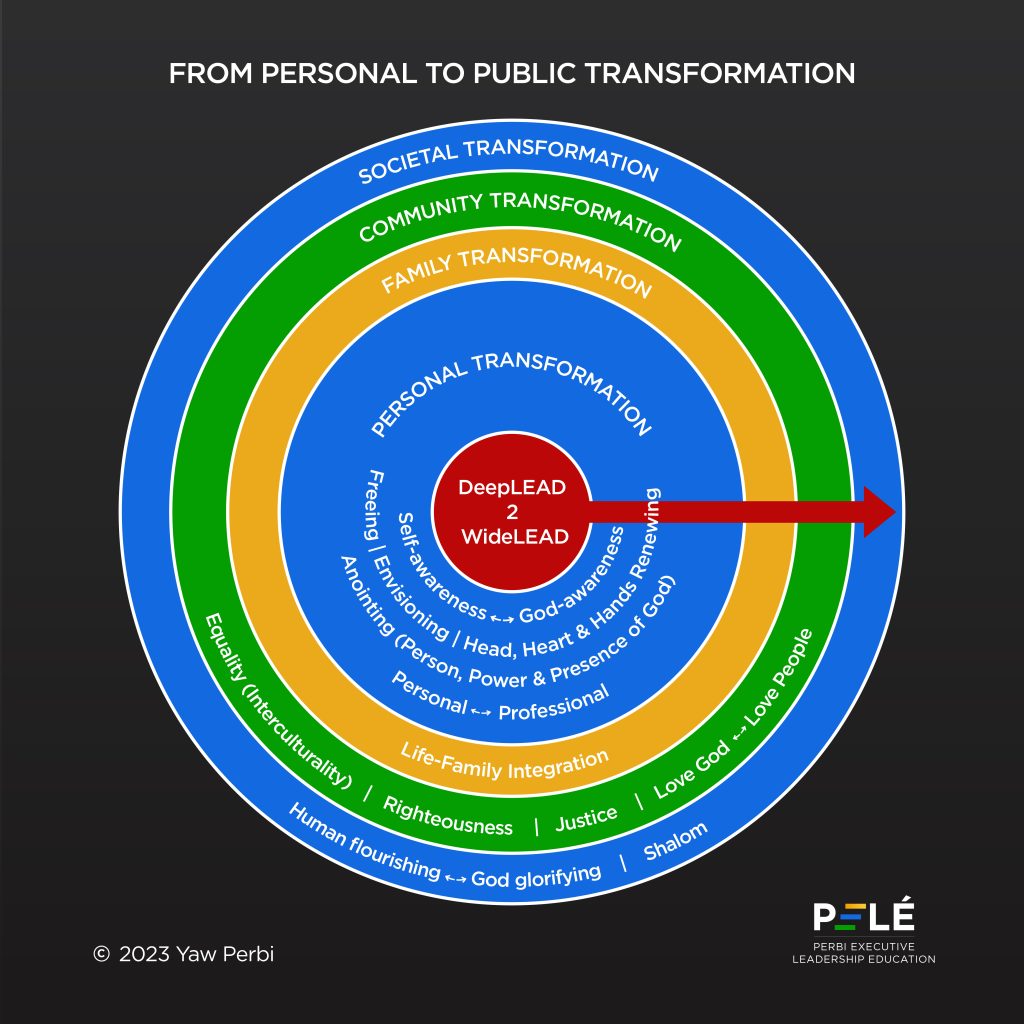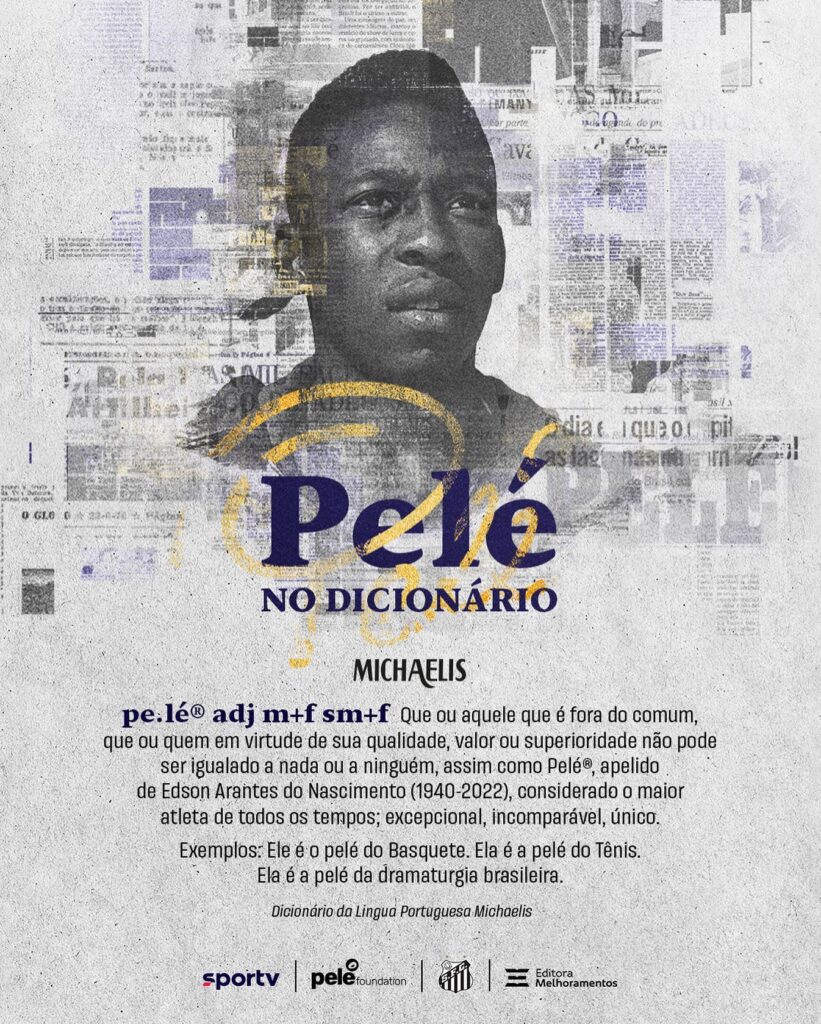
The ‘L’ Word. Leadership is Not a Dirty Word.
Perbi Executive Leadership Education (PELÉ) just concluded a successful co-hosting of the annual John Maxwell Team conference dubbed Live2Lead in Accra. Corporate, non-profit and other leaders in Ghana experienced in real-time, via simulcast, the motions colleagues in Atlanta, Georgia were also going through in the United States. Live2Lead. Live is an ‘L’ word, so is Lead. Yet Google “The ‘L’ Word” and you are more likely to be greeted with Lesbian or even Los Angeles and not Lead(ership). In fact, a certain Showtime drama series that depicts these other L’s and aired in the first decade of this century dominates the internet should you conduct “the ‘L’ word” phrase search.
For us at PELÉ, Leadership is the ‘L’ word. If Dr. John C. Maxwell is right that “leaders see everything with a leadership bias,” then is it any wonder? This is incredibly important to us in our quest to form a global ecosystem of authentic leaders that in our DeepLEADTM courses, the first of all 24 modules (in a three-part series comprising eight modules each) is actually entitled “The ‘L’ Word.” We LOVE Leadership.
Some associate leadership with politics and because “politics is dirty” leadership gets a bad rap; leadership then becomes a dirty word and a dirty thing. Politics, like any other worthwhile thing, can be dirty. But even when and where it is true that “politics is dirty,” leadership is bigger than politics. In fact, our founding principal at PELÉ is on record to have said that “leadership is too important to leave it to politicians alone.” Similarly, because “Gen Z doesn’t do hierarchy,” the current rejection of twentieth century ‘command and control’ and ‘authoritarian’ leadership to rather embrace a flatter perception of the leader—plus the notion of twenty-first century ‘distributed leadership’—also tends to make the word ‘leadership’ undesirable, even demonized in some quarters today. For many, leaders and leadership have had a bad rap, a negative reputation, hence the title and subtitle of the first of our DeepLEADTM modules, The ‘L’ Word—Leadership is not a dirty word, with the wild hope to change that narrative in the head and heart of anyone who cares to pay attention. We establish the paradigm that the current rejection of twentieth century ‘command and control’ and ‘authoritarian’ leadership and the embracing of a flatter perception of the leader plus and distributed leadership does not exclude how vital leadership is and what it can/cannot do.
‘O’ for Objectives
While the overall aim of the DeepLEADTM Growth Series is “to establish an indisputable link between the person of the leader—including their self-awareness, life story, character, temperament, habits, emotional health—and the success of leadership,” the specific objectives of The “L’ Word module include exposing students to the wide array of leadership opinions and definitions to appreciate the breath and nuance of the ‘L’ subject. By the end of the course, one would’ve laid “the foundation for the topic of leadership in a memorable and definitive way for not just the course itself but for all of life.” While one would’ve compared and contrasted two dozen leadership definitions and descriptions, studied a 200-year panorama of leadership paradigms from the Great Man Theory of the 1800s to Authentic Leadership or Adaptive Leadership of the first and second decades of this century respectively, there’s an all-encompassing Dr. Yaw Perbi definition of a leader, which we use throughout the course and in our engagements with clients.
‘D’ for Definitions
It has been interesting observing the definitions and descriptions of leadership that have most caught the attention and strummed the heartstrings of the October 2023 cohort of the DeepLEADTM live Masterclass. Already, the fact that DeepLEADTM embraces complexity, straddles paradigms and tames tensions is forming these in them as they grapple with definitions that even seem contradictory, like Mandela’s shepherd paradigm of leading from behind and fellow Noble Prize laureate Mott’s whose definition of leadership is being in front and staying ahead! Here’s John R. Mott (Nobel Peace Prize laureate 1946): “Leaders are people who know the road, and who can keep ahead, and who can pull others after them.” Here comes Nelson R. Mandela (Nobel Peace Prize laureate 1993): “A leader…is like a shepherd. He stays behind the flock, letting the most nimble go out ahead, whereupon the others follow, not realizing that all along they are being directed from behind.” The DeepLEADer has the wisdom to know when and where to be ahead or lead from behind.
Whether it’s the leadership theories, descriptions or definitions in The ‘L’ Word module, by the end of it leaders undergoing it would realize that no one theory, description or definition is enough to explain all of leadership. Warren Bennis captures the nuance and complexity of the ‘L’ word well when he asserts, “Like love, leadership is something that everybody knows exists, but no one can define…” No wonder, he explains, “decades of academic analysis have given us more than 350 definitions of leadership.”
Conclusion
What dominates our minds when it comes to “the ‘L’ word” is miles apart from what populates a typical Google search today. But Leadership is the ‘L’ word. And it is incredibly important, as strongly put in the DeepLEADTM series, that because “everything rises and falls on leadership” and “leadership is cause, everything else is effect,” one day, eventually, Leadership will get the most results in an internet search for “the ‘L’ word.” In the course we state, and it bears repeating, that “Whether in normal times or unusual ones, the tenets and principles of great leadership ought to be passed on to each generation.” So no matter what letters we assign to the generations–X, Y, Z, Alpha, whatever–that in each and every generation, the ‘L’ word would be Leadership. That’s what we live for, why we’re here. We live to lead.
Post Script
DeepLEADTM is for any leader seeking profound, authentic transformation—of self, systems & society—that lasts. There is a live DeepLEADTM Masterclass currently ongoing. Watch out for the launch of the online pre-recorded, self-paced version in December 2023.
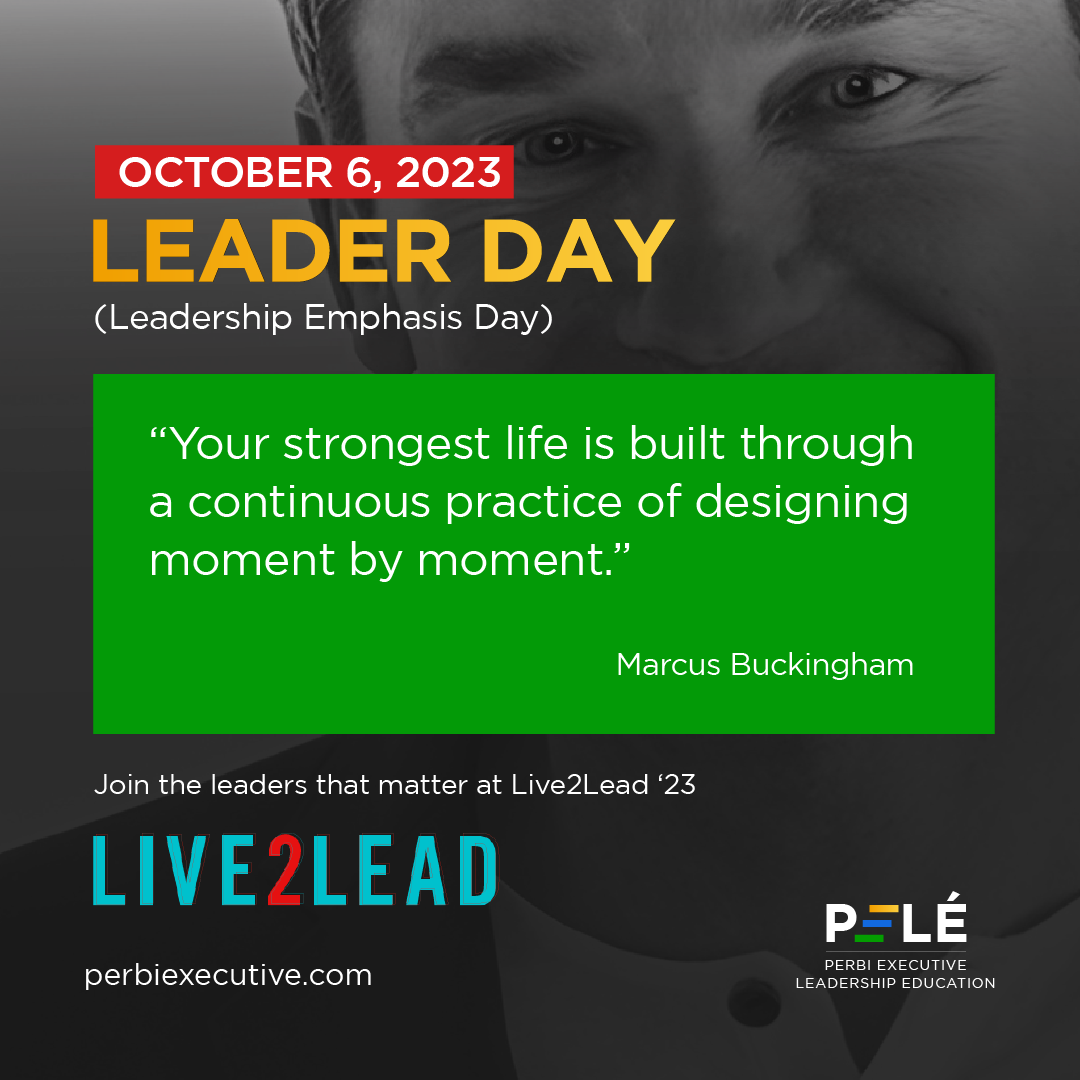
Meet Motivational Marcus Buckingham, Master of Strengths
British best-selling book-writer and arguably “the world’s most prominent researcher on strengths, leadership and high-performance at work,” Marcus Wilfrid Buckingham, is a remarkable individual. If you’ve ever heard of Strengthsfinder, or better still, taken the phenomenal assessment, behold the co-genius behind it! Renowned for his outstanding contributions to the world of work and the fields of technology, innovation, and philanthropy, Buckingham is a global researcher and New York Times best-selling author focused on unlocking strengths, increasing performance, and pioneering the future of how people work. He is the author of two of the best-selling business books of all time, First, Break All the Rules (1999), and Now, Discover Your Strengths (2001), and his tenth book, Love + Work (Harvard Business Review Press, 2022) is a Wall Street Journal bestseller and has been heralded by Forbes as one of the ten must-reads for career and leadership. Marcus’ 2019 Harvard Business Review (HBR) cover article, “The Feedback Fallacy,” was selected by HBR as one of the most influential articles of the last 100 years, and Marcus’ strengths assessments have been taken by over 10 million people worldwide.
Born 1966 in Buckinghamshire in Britain, Marcus displayed an innate curiosity and passion for technology from a young age. After completing his formal education at Cambridge in computer science, Marcus co-founded a startup in the late 1990s that revolutionized the way people interacted with online content. The company’s groundbreaking platform garnered widespread attention and accolades, propelling Marcus into the limelight as a visionary tech entrepreneur. Throughout his career, Marcus remained at the forefront of technological advancements, leading numerous successful ventures and launching groundbreaking products that transformed industries. His dedication to innovation and his ability to anticipate market trends earned him a reputation as one of the foremost technology pioneers of his time.
Beyond his professional accomplishments, Marcus Buckingham has always been deeply committed to making a positive impact on society. He is renowned for his philanthropic efforts, actively supporting various causes related to education, healthcare, and environmental sustainability. Marcus firmly believes in using his wealth and influence to drive positive change and has donated generously to charities and initiatives around the globe. In addition to his philanthropy, Marcus has been an advocate for promoting diversity and inclusivity within the tech industry.
In addition to the self-published short film series Trombone Player Wanted, Buckingham has made numerous television appearances on US television networks and cable channels including The View on ABC, I Want to Work for Diddy on VH1, The Oprah Winfrey Show on syndication, Good Morning America on ABC and The Jane Pauley Show. Marcus Wilfrid Buckingham the English research-based motivational speaker and business consultant is based in California, USA.
BUCKINGHAM LIVE AT MAXWELL’S LIVE2LEAD ANNUAL CONFERENCE 2023
Marcus Buckingham speaks at this year’s annual Live2Lead Ghana, a brainchild of Dr. John C. Maxwell. As Perbi Executive Leadership Education (PELE), we have been privileged to host Live2Lead on both sides of the Atlantic, in Montreal, Canada as well as in Accra, Ghana. We are absolutely convinced that leadership is taught; not just caught. Join John and the stellar faculty he’s put together for this year’s Live2Lead conference and up your leadership game.
This year, together with our partners in Ghana, we’ve chosen the theme, “Leading for Legacy.” Here’s a taste of Marcus Buckingham’s take on legacy: “Your strongest life is built through a continuous practice of designing moment by moment.” Legacy doesn’t just happen; it’s by intentional, intelligent design. Come and find out how, in-person at the Ecobank Ghana Headquarters in Accra, or online, wherever in the world you might be!
October 6 is Leader Day this year. Register now through this link. Impress upon your organization to join the Leadership Emphasis Day/Leader Day movement that will transform society by becoming a Patron of Live2Lead. A Patron company or individual is one that sends at least 10 leaders to Live2Lead. Together we can change our world for the better! Yes, we can!
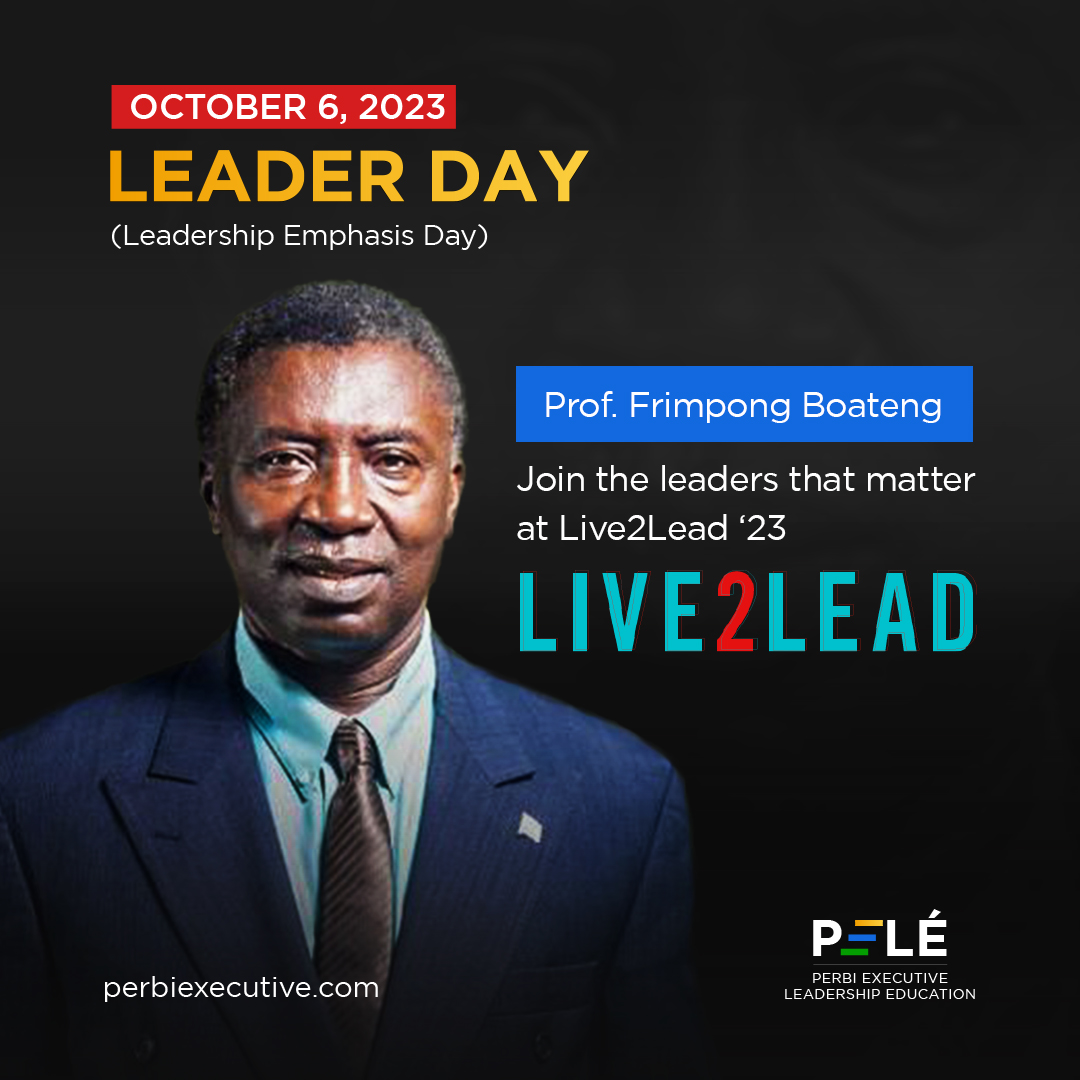
The Father of Open Heart Surgery Opens His Heart at Live2Lead 2023
Professor Kwabena Frimpong-Boateng is an astute German-trained Ghanaian cardiothoracic surgeon and founder of the National Cardiothoracic Centre whose recent foray into Ghanaian politics nearly marred his otherwise stellar legacy. He is also the Founder and President of the Ghana Heart Foundation, erstwhile Chief Executive Officer of Ghana’s premier teaching hospital (the Korle Bu Teaching Hospital, in Accra) and immediate past Minister of Environment, Science, Technology and Innovation for the Republic of Ghana (2017-2021). He has been a Fellow of the Ghana Academy of Arts and Sciences since December 2002.
A STRING OF FIRSTS
The best leaders lead from the power of their life stories, positive and otherwise. Even before Kwabena Frimpong-Boateng would be born, his father Kofi Frimpong died from chest/heart injuries sustained from a road traffic accident. Kwabena was barely four months from birth. It comes as no surprise then that although his first love was engineering, due to his affinity for physics and mathematics while he attended Sekondi College in the Western Region of Ghana, he later would later go the doctor route at university. As if destiny was calling, after the University of Ghana Medical School and housemanship, he was offered a scholarship to study general, cardiothoracic and vascular surgery in Germany. As Frimpong-Boateng figured he could help people with heart situations like his late father, he took the opportunity to sharpen his craft and deepen his calling at the Hannover Medical University in Hannover.
So forty years ago, in 1983, Kwabena Frimpong-Boateng and his team of professors did their first heart transplant on a human being and then performed his first transplant as the lead surgeon in October 1985. This made him the first Black doctor to perform a heart transplant, earning him the nickname the “Black Pearl.”
At the time, he was recognized worldwide for this feat and as if that was not enough, in November 1988, three years later, he struck another first: the first heart-lung transplantation in Hannover. After finishing his post-graduate studies, despite being in very high demand in Europe, he chose to return to the land of his birth to practise as Ghana’s first locally based cardiothoracic surgeon. Frimpong-Boateng performed the first open-heart surgery in Ghana using the heart-lung-machine.
Even away from the hospital, as a farmer Frimpong-Boateng established the first ostrich farm in Ghana, in the village of Dedukope, in the Volta Region of Ghana.
SPEAKING OF LEGACY
Translating his personal success into societal significance, in 1989 he set up the National Cardiothoracic Centre at the Korle Bu Teaching Hospital and was commissioned in 1992. There were no cardiothoracic surgery facilities in the country at the time and this was really avant garde for a country still struggling with primary health care issues such as mosquito-bourne Malaria and childhood vaccinations. Today, people head to the centre from all over the continent for cardiothoracic attention and is now recognised by the West African College of Surgeons to train heart surgeons, cardiologists, cardiac anaesthetists, operating room nurses, intensive care nurses, cardiac technicians, and other cardiothoracic technicians. As a practicing Christian, he has said that his work on the foundation of the National Cardiothoracic Centre was God’s purpose in his life.
One of the greatest way to pass on legacy is by teaching others. Frimpong-Boateng joined the University of Ghana Medical School as a lecturer in 2000 and was promoted associate professor the same year. He was made a full professor in 2002. He also served as the head of the Department of Surgery at the University of Ghana Medical School, prior to his appointment as the Chief Executive of the Korle-Bu Teaching Hospital in 2002. The Ghana Heart Foundation, which he also founded, raises funds to pay for heart surgery for some indigent Ghanaians who cannot afford the cost of such specialized surgery.
Again, he has done well, in terms of passing on legacy, by authoring a couple of biographical books, Deep Down my Heart: A History of Cardiothoracic Surgery in Ghana and Taming the Monster, a treatise on managing Ghana’s behemothic premier teaching hospital.
In March 2006, Prof. Frimpong-Boateng unsuccessfully sought nomination as the candidate of the New Patriotic Party (NPP) for the December 2008 national presidential elections. Regardless of his results, he declared he was still concerned with political issues in relation to education and health problems and would later become a Minister of State. Yet he regrets that political corruption in Ghana is too much and opines that politicians are not taking social priorities into account, especially the need for technology. His foray into the deep and often turbulent waters of politics, especially as chairman of the inter-ministerial committee on illegal mining in the country, nearly marred his enviable legacy of pioneering and impactful lifework. In a recent interview with the Africa Watch magazine, he boldly declared, “Impunity rules in Ghana.”
The erudite professor has had several local and international awards over the last four decades, including two honorary doctorates. Frimpong-Boateng and his wife, Agnes, have five children, some of whom are doctors also.
PROF. FRIMPONG-BOATENG AT JOHN MAXWELL’S LIVE2LEAD ANNUAL CONFERENCE 2023
The good professor speaks at this year’s annual live2lead Ghana, a brainchild of Dr. John C. Maxwell. As Perbi Executive Leadership Education (PELE), we have been privileged to host Live2Lead on both sides of the Atlantic, in Montreal, Canada as well as in Accra, Ghana. We are absolutely convinced that leadership is taught; not just caught. Join John and the stellar faculty he’s put together for this year’s Live2Lead conference and up your leadership game.
This year, together with our partners in Ghana, we’ve chosen the theme, “Leading for Legacy.” Speaking of legacy, in the said interview with the Africa Watch magazine, Prof. Frimpong-Boateng said, “Life is not all about fame and money, but more importantly, what one can do to help others.” He also recently wrote An Open Letter to Anybody Who Wants to be President of Ghana in 2025. Among other things, words that bordered along legacy were the following: “…the success of true leadership is measured by what extent the people can be mobilized to lead independent lives: to feed, shelter, clothe, heal, and defend themselves, and also produce tools, implements, spare parts and machines they require for daily living, so that if for one reason or the other ships and airplanes are unable to access the country the citizens can stand on their own and survive.” Come and find out how to truly lead successfully, in-person at the Ecobank Ghana Headquarters in Accra, or online, wherever in the world you might be!
October 6 is Leader Day this year. Register now through this link. Impress upon your organization to join the Leadership Emphasis Day/Leader Day movement that will transform society by becoming a Patron of Live2Lead. A Patron company or individual is one that sends at least 10 leaders to Live2Lead. Together we can change our world for the better! Yes we can!
Register HERE, NOW.
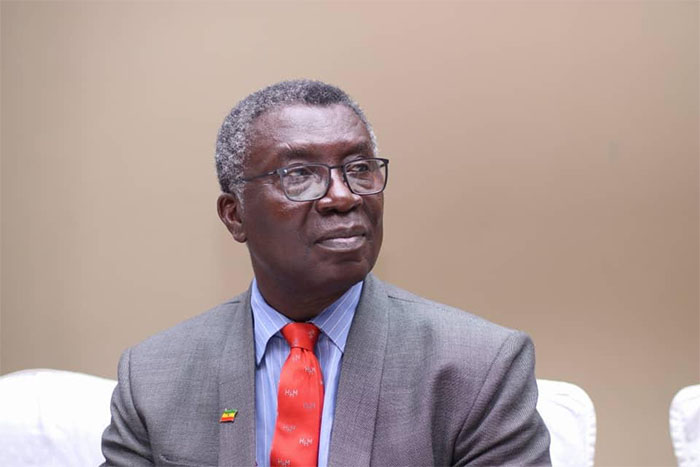
Open Letter to Anybody Who Wants to be President of Ghana in January 2025 by Prof. Kwabena Frimpong-Boateng
Ghana has not done as well as it should have done since President Kwame Nkrumah was unconstitutionally ousted from office through a military coup by the National Liberation Council on February 24, 1966. Ghana has had three other interruptions of governments. The present 4th Republic, dominated by the National Democratic Congress (NDC) and the New Patriotic Party (NPP), has not brought the transformational change that will put the country on path of sustainable development and prosperity for its people.
I dare say that the fight ahead of Ghana is greater than the fight for political independence and its people cannot be won with leaders who lack the zeal, commitment, conviction to confront their own demons and other forces and headwinds that are against the development of the country.
It is always said that one cannot re-invent the wheel and I believe in that old adage. I present here examples of what happened elsewhere on this planet not too long ago. I personally believe that the country can make progress when we get leaders who exhibit the qualities in the examples that follow.
The first example of transformational leadership is from Singapore. When the government of Lee Kuan Yew took office in 1959 it set out to have a clean administration. The Prime Minister said that “we were sickened by the greed, corruption, and decadence of many Asian leaders” and “We had the deep sense of mission to establish a clean and effective government”. This was a solid commitment from the newly elected Prime Minister. With determination and a credible program committed to scientific and technological development, Lee Kuan Yew and his team were able to live up to their good intentions and Singapore, which in 1819 was a village with 120 fishermen without natural resources and hinterland, propelled itself from third world squalor to first world affluence in just 35 years. This was commitment and a sense of mission personified.
The second example is from China. The economic development taking place in China is the result of an initiative taken by four scientists. On the 3rd of March 1986, four of China’s top weapons scientists: WANG Daheng, WANG Ganchang, YANG Jiachi, and CHEN Fangyun, jointly sent a private letter to Deng Xiaoping, the leader of the country, with a warning that decades of relentless
focus on militarization had crippled the country’s civilian scientific establishment. They recommended that China must join the world’s “new technological revolution,” or it would be left behind. They called for an élite project devoted to technology ranging from biotech to space research. Mr. Deng Xiaoping agreed, and scribbled on the letter, “Action must be taken on this now.” This was China’s “Sputnik moment,” and the project was code-named the 863 Program, for the year and month of its birth. In the years that followed, the government pumped billions of dollars into labs and universities and enterprises, on projects ranging from cloning to underwater robots. The program initially focused on seven key technological fields: Biotechnology, Space technology, Information technology, Laser technology, Automation, Energy, and Advanced Material Sciences.
Two more fields were brought under the umbrella of the program: Telecommunications (1992) and Marine Technology (1996).
In 2006, Chinese leaders redoubled their commitment to new energy technology; they boosted funding for research and set targets for installing wind turbines, solar panels, hydroelectric dams, and other renewable sources of energy that were higher than goals in the United States. China doubled its wind-power capacity that year, and then doubled it again the next year, and the year
after. The country had virtually no solar industry in 2003; five years later, it was manufacturing more solar cells than any other country, winning customers from foreign companies that had invented the technology in the first place.
Korea transformed itself from a stagnant agrarian society into one of the most dynamic industrial economies of the world within 40 years. In the early 1960s when Korea first launched its industrialization efforts, it was a typical poor developing country with poor resources and production base and small domestic market. Korea’s Gross National Product (GNP) in 1961 was only $ 2.3 billion (in 1980 prices) or $87 per capita which came mainly from the primary sectors. The manufacturing sector’s share of GNP remained at a mere 15%. International trade was also at a very infant stage: in 1961, Korea’s export volume was only $55 million and imports $390 million. As late as 1970, the three top exports were textiles, plywood, and wigs. South Korea now has established world prominence in such technology areas as semi-conductors, Liquid Crystal Display (LCD), telecommunication equipment, automobiles, shipbuilding, and many more. Indeed, it has emerged as one of the key international players in the global economy and is considered the 13th largest economy and one of the major trading countries of the world.
The last example is from the United States of America. When the 56 signatories of the Declaration of American Independence met in the State House of Pennsylvania in Philadelphia on the 4th of July 1776 to append their signatures to the famous document on declaration of America’s Independence this is what they said: “And for the support of this Declaration, with a firm reliance on the protection of divine Providence, we mutually pledge to each other our Lives, our Fortunes and our sacred Honor”.
The signers of American Declaration of Independence, twenty-three lawyers, fifteen merchants, five plantation owners, four physicians, three scientists, two land speculators, one farmer, one military man, one lawyer/musician and one Minister, showed tremendous courage and bravery by willingly putting their names on that document. They knew full well that they were committing treason against England and they knew the penalty was death. Their commitment to the United States of America led to the creation of what is still the richest and most powerful country in the world. Ghana has not yet seen the type of closed, united, committed, focused, and dedicated leadership that is ready to sacrifice for future generations of Ghanaians. We have not had leaders who see beyond the next elections and plan for future generations. If a few leaders of this country, relying on the protection of divine providence, would mutually pledge their lives, fortunes, and sacred honor for the development of Ghana, there would be a palpable change within 2 years. May be there is no sacred honor or fortune to pledge on.
The political corruption that is gradually gaining root in Ghana is very disturbing. When it comes to choosing leaders to run the political parties and the nation it is no more a question of looking for selfless and competent individuals who have what it takes to move the nation forward. It is more of who is loyal to powerful individuals who want their interests to be served after the power
is won.
I expect anyone who wants to lead this country to tell the nation now how things are going to be done differently so that young people would begin to have hope and stake in this country.
Our leaders have devalued themselves to the extent that they think only foreigners can help us out of our misery. How can someone tell us that he is waiting for a loan from some other countries before roads, schools and other infrastructural projects can be executed?
Our leaders seem to know it all and can develop this country without Ghanaians. After all they do not need Ghanaians to travel around looking for loans, grants, and handouts. They do not need Ghanaians to build the infrastructural projects. As it is, those who give out the loans also provide the highly qualified and skillful workers from their country to get the work done.
Our leaders’ understanding of development seem to be only the provision of infrastructure. No country ever developed by borrowing to build infrastructure. ‘Something’ else must be built on the infrastructure. That something is the true development.
As far as I am concerned the many roads, interchanges, schools, hospitals, wells, electricity, and other infrastructural projects, erroneously called development projects, do not alone determine the success of a Government. Rather the success of true leadership is measured by what extent the people can be mobilized to lead independent lives: to feed, shelter, clothe, heal, and defend themselves, and also produce tools, implements, spare parts and machines they require for daily living, so that if for one reason or the other ships and airplanes are unable to access the country the citizens can stand on their own and survive.
We need attitudinal change. We should realize that the overall development of the nation, including the economic, social, cultural, and technological development is the responsibility of the Ghanaian. Mr. Future President, the men, and women to solve the myriads of problems facing us are here at home and in the diaspora. They have to be found and encouraged to perform. The task of political
leadership is to unearth the actors needed to transform the nation. If we say we have the men, let us use the men and not the boys.
We should exorcise the ‘beggar mentality’ from our lives and accept that our poverty is self-inflicted and it is absolutely unnecessary.
We pride ourselves as having been endowed with abundant natural resources. That is true but it is also important to know that natural resources have no natural owners. The real owners are those that have the technology, skills, and the financial power to exploit those resources. They are the ones that take 90% of the mineral and other resources and leave a mere 10% for the host country.
It really beats my understanding that our leaders do not seem to realize that the real difference between the developed countries of America, Europe, Asia and the Far East and the underdeveloped countries of Africa lies in their technological capability. This capability has been defined as the extent to which countries access, utilize, and create science and technology for the solution of socio – economic problems. Technology has the track record of solving developmental problems. Our modern world is driven by technology. Energy, agriculture, medicine and health, clean air and water, transportation, sanitation, management, utilization, and conservation of natural resources — all are based ultimately in science and technology. So, it is obvious that to be a part of that world, there must be science and technology elements in the development process.
Despite efforts to alleviate poverty, Ghana still exhibits chronic inability to alleviate poverty. Poverty alleviation means, for many people, being able to afford nutritious food, access to clean water and sanitation, energy, safe shelter, education, and a healthy environment. Since science and technology have a historical record in providing solutions to poverty problems, any efforts to alleviate poverty will not succeed without innovations in food production, water, energy, and health provision and in general economic growth. We must understand that Science, Engineering and Technology will give us the capacity to manufacture machines, develop processes and materials and exploit our abundant natural resources for national development. If we do not develop the capacity to manufacture machines that will work for us, we should as well forget about any dream of developing the Nation. No country ever developed without the capacity to manufacture machines. If we characterize Ghana as an agricultural nation, we do so by default because we cannot do anything else. We will continue to run the Adam and Eve, Cain, and Abel economy: planting yams and rearing animals. We have not advanced to Noah’s economy. He built a sophisticated ship that saved humanity and other forms of life. About 2200 years ago, the Chinese built the over 6300km Great Wall of China, without any assistance from the World Bank but we in the 21st Century have closed our minds to technology and need assistance to construct everything, including toilets. We need to constantly remind ourselves that the POVERTY GAP is a TECHNOLOGY GAP.
Again, our development should be driven by our ability to understand, interpret, select, adapt, use, transmit, diffuse, produce, and commercialize scientific and technological knowledge in ways appropriate to our culture, aspirations, and level of development.
Ghana needs a new brand of leadership. It is unacceptable that about 80% of inputs into agriculture, education and health are from foreign sources. It is a shame that a major thrust of our economic policy is to try as much as we can to attract foreign investors. Good as foreign investments are we just cannot sit down and think that without confronting our problems ourselves we can still be prosperous.
To my mind Ghana is unable to attract significant Foreign Direct Investments (FDI). Any country that does not take the development of her human capital seriously finds is difficult to attract Foreign Direct Investments (FDI). The high-income developed countries with well-developed human capital are not only the major source of direct investment, but they are also the major recipients. China and the United States of America are the major recipients of FDIs in the world.
There is ample evidence that multinationals are more active primarily between similar, high-income countries and that outward direct investment in particular is associated with skilled-labor abundance. Even when a multinational decides to invest in a developing country with low human capital base the type of investment is the vertical one in which the production process is geographically fragmented by stages, the capital-intensive intermediates being produced in the home country of the multinational and the labor-intensive stage produced in the host country. This is in contrast to the horizontal investments in which the multinational carries on basically the same activity in the host country as at home, for example, German investors producing the same cars in the United States of America as they do in Germany. This type of investment is almost non-existent in Ghana.
Finally Mr. Future President, I believe that the greatest asset of a nation is the trust and confidence of its people. This should, however, not be taken for granted. Leadership must also fight for this great asset by working hard with even-handedness for the people in all honesty. This asset has been and still is being squandered through misgovernment and corruption to the extent that leaders are not trusted and citizens do not see that they have a stake in their country and its future.
Most Ghanaians do not see any virtue in working for the future of their country. Our leaders have not been able to invoke in the citizens the spirit of nation building. Mr. Future President how are you going to rectify this situation?
God bless our homeland Ghana and make our nation great and strong.
A PELE Note
Prof. Kwabena Frimpong-Boateng is an astute German-trained Ghanaian cardiothoracic surgeon and founder of the National Cardiothoracic Centre whose recent foray into Ghanaian politics nearly marred his otherwise stellar legacy. This Open Letter was written by the good professor on 31st August, 2023. Perbi Executive Leadership Education (PELE) contacted him for his original typed up version on September 20, 2023 to republish here in toto, unedited whatsoever. He is scheduled to speak in-person at the John Maxwell Live2Lead Conference in Ghana on Friday October 6, dubbed Leader Day.

Behold Kendra Scott–Builder of a Billion Dollar Legacy from a $500 Budget!
Kendra Scott (born March 27, 1974) is an American fashion designer, founder,former CEO, executive chairwoman, and philanthropist. Kendra Scott, née Baumgartner, started her company (named after her) in 2002, just three months after her first son was born, with only $500. Going door-to-door to Austin, Texas, boutiques armed only with a tea box full of her jewelry, Kendra captivated businesses and customers with her vibrant personality and unique eye for design. Known for her dynamic use of color and genuine materials, Kendra’s commitment to innovation, quality and detail has brought her from a small start-up to a billion-dollar business and has won over loyal fans, media and celebrities alike.
With over 2,000 employees, Kendra Scott boasts of a thriving web business and over 100 standalone stores and has expanded beyond fashion jewelry into the categories of fine jewelry, home decor, and beauty. Today, her company continues to operate out of Austin, TX, with their state-of-the-art corporate office complete with design lab and an industry-leading distribution center both catering to her employees’ career goals and family-life balance.
With Family and Fashion as two core pillars of her business, Kendra maintains a focus on her other core pillar of Philanthropy in all she does. Since 2010, the company has given back over $40 million to local, national and international causes. In 2018 alone, the company gave over $5 million in monetary donations, almost $10 million in in-kind donations, over 2,000 volunteer hours to philanthropic organizations, and partnered with more than 8,000 philanthropic organizations nationwide.
Kendra has been awarded with the EY Entrepreneur of the Year 2017 National Award; the Breakthrough Award from the Accessories Council Excellence Awards; named Outstanding Mother of the Year by the Mother’s Day Council; awarded Texas Businesswoman of the Year by the Women’s Chamber of Commerce; listed by Forbes as one of America’s Richest Self-Made Women; Top 100 Entrepreneurs of the Year by Upstart Business Journal; Best CEO by Austin Business Journal; and Honorary Celebrity Chair for the Ronald McDonald House Charities of Central Texas. She is a member of the Council of Fashion Designers of America and maintains her position as Executive Chairwoman of the Board of Kendra Scott, LLC, the 1-billion-dollar company she founded and was CEO of until she passed on the baton. In 2019, Madam Scott became only the 12th woman in her state to be inducted into the 40-year old Texas Business Hall of Fame. Kendra has a 2022 book entitled, “Born to Shine: do good, find your joy, and build a life you love.”
KENDRA SCOTT AT JOHN MAXWELL’S LIVE2LEAD ANNUAL CONFERENCE 2023
Kendra Scott speaks at this year’s annual live2lead Ghana, a brainchild of Dr. John C. Maxwell. As Perbi Executive Leadership Education (PELE), we have been privileged to host it on both sides of the Atlantic, in Montreal, Canada as well as in Accra, Ghana. We are absolutely convinced that leadership is taught; not just caught. Join John and the stellar faculty he’s put together for this year’s Live2Lead conference and up your leadership game.
This year, together with our partners in Ghana, we’ve chosen the theme, “Leading for Legacy.” Here’s Kendra’s take: “Focus on what lights a fire inside of you and use that passion to fill a white space. Don’t be afraid of the challenges, the missteps, and the setbacks along the way. What matters is that you keep going.” Come and find out how, in-person at the Ecobank Ghana Headquarters in Accra or online, wherever in the world you might be!
October 6 is Leader Day this year. Register now through this link. Impress upon your organization to join the Leadership Emphasis Day/Leader Day movement that will transform society by becoming a Patron of Live2Lead. A Patron company or individual is one that sends at least 10 leaders to Live2Lead. Together we can change our world for the better! Yes we can!
Register HERE, NOW.
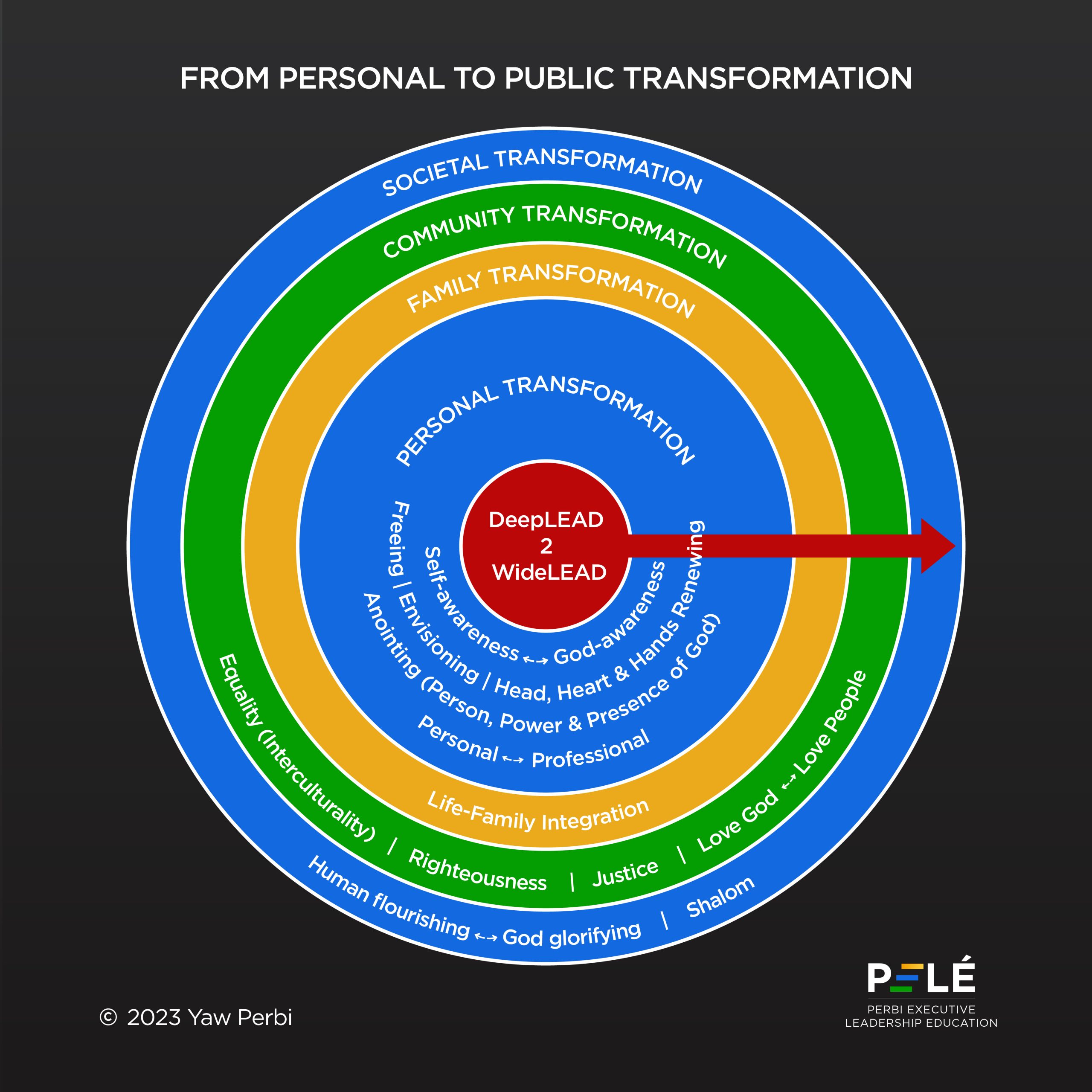
The Throes & Trajectory of Transformational Impact
Over 500 American-Africans—my way of describing Africans who have more recently in the last one or two generations become Americans—gathered in no less a place than the Lord Baltimore Hotel in the downtown of that Charm City of Maryland which bears the same name as the hotel. One of the interesting trivia that decorated the elevators at the hotel is that Martin Luther King Jnr. held his April 2, 1965 press conference at this same historic venue.
The theme chosen for this biannual national conference of these American-African professionals known as the African Christian Fellowship (ACF) USA was Transformational Impact. Yours truly was one of two keynote speakers, who both happened to be medical doctors who hailed from West Africa, Ghana and Nigeria specifically.
While my first keynote was an hour-long and had seven points about transformational impact—text, tales, theology, tracks, teleological definition, theory and tenets—I only seek to share the crux of the key note with you in this short write-up. I shall share the teleological definition of transformational impact which I came up with after reading many others online and found none fully satisfying my take on the subject. And then I’ll share my theory of change, theory of how transformational impact actually happens.
Definition of Transformational Impact
Transformational Impact is the process of deeply internally changing in one’s being and doing in order to have, or participate in an attempt at, external profound, authentic and sustainable positive change. If you are anything like me, when you hear transformational impact you’re thinking about doing some thing to change something or someplace or someone. The paradigm shift in this definition is that transformational impact has two points of change—first, of the person seeking an intervention and then of the circumstance or situation. That brings us to the theory of change.
Theory behind Transformational Impact
Why is this definition like this and super important? Because we cannot deeply change anything without being deeply changed ourselves first. Here is the theory of change that goes with the issue of transformational impact: Only deeply transformed leaders can deeply, authentically and sustainably transform society.
This is not the first time I’ve written on this. I remember bringing it up when there was a massive trending in Twittersphere of the hashtag #fixthecountry in a certain West African state and a counter #fixyourself that was attempted to quench the fire. In the article, I share why both camps were wrong. It goes back to the theory behind transformational impact.
There cannot possibly be authentic transformation when the actor isn’t themselves in sync with what they’re acting upon. Besides, if there isn’t transformation of the protagonist themselves, their intervention wouldn’t last long—either their work will unravel with time or they themselves will be marred in no time.
You might now understand why this definition is important. One’s identity and character (being) and actions and activities (doing) first need below-the-surface transforming internally in a deep manner if the outward impact they seek will also be profound, real/authentic and last.
In fact, without going too much into the theology of transformational impact, let me state that God first shapes the people through whom He wants to shape the world so that they can reflect Him and reform His world by His shaping—in His image and likeness—to His glory.
Widening Circles of Transformational Impact
Above is an attempt to illustrate how it’s a DeepLEAD at the core which leads to WideLEAD, from personal transformation to public transformation. We can’t go wrong if it’s first our deep personal transformation that leads to family transformation, community transformation (from church to corporation) and then societal transformation.
Elsewhere I’ve written about how people like William Wilberforce, Zaccheus the Tax Man and Nelson Mandela transformed their societies and world because they had first been deeply transformed. In fact, the title of an opinion piece on Nelson Mandela in the Los Angeles Times which I really enjoyed captured the essence of transformational impact so succinctly: “Nelson Mandela transformed himself and then his nation.”
So did Martin Luther King, who first darkened the doors of the Lord Baltimore Hotel a whole 60 years before I and the 500 plus American-Africans would a couple of weeks ago. Where any of these transformationally impactful leaders missed a step in the transformational impact process, they too paid for it in their personal, family, community or national life. Principles are no respecter of persons or personalities.
Change First to Carry Forth Change
So now’s your turn. Your time has come. Change first personally to carry forth change societally. Former U.S. President Barak Obama and I differ when it comes to LGBTQI+ transformation but we agree on this: “Change will not come if we wait for some other person or some other time. We are the ones we’ve been waiting for. We are the change that we seek.” The astute Jewish lawyer who studied under revered Gamaliel once said, “For the creation waits in eager expectation for the children of God to be revealed.” The whole world waits to be transformed by a people transformed prior and still transforming in the process. We are transformed to bring transformation. How’s that going?
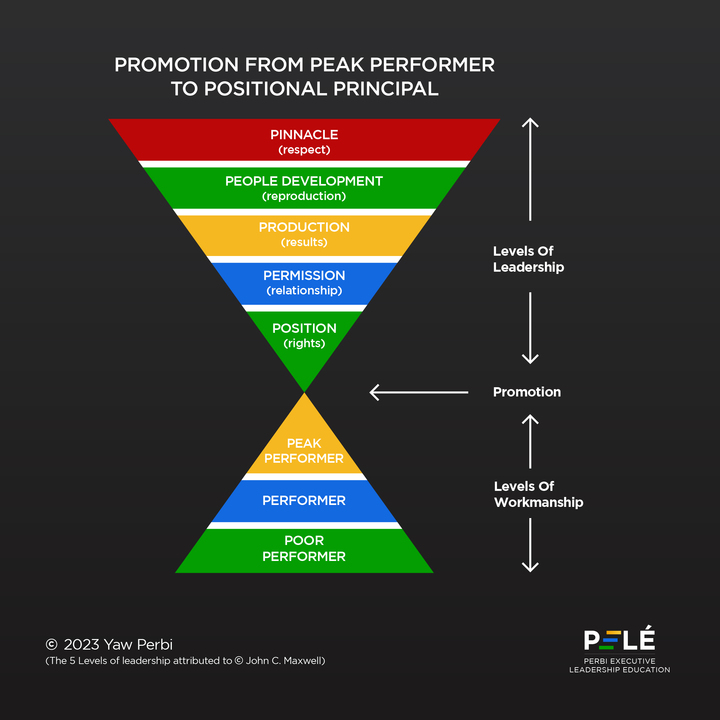
The Best Promotions are the Worst.
Here’s the worst thing about the best promotion. At one of my organizations, we recently had to let an excellent hire go. Come to think of it, we failed him. We failed him by promoting him.
You would think that all promotions are good but no. One of the worst kinds is being ‘elevated’ to become a leader just because you are an outstanding worker or producer. Working on stuff and excelling is very different from working with souls to excel. The reward for hard work is more work, weird yes, but the latter tends to be more mental work than manual —which most people find as more beneficial—also, more of working with people than working on things.
As one person shared about struggling with leadership upon her first promotion as a telco manager: “Within one month, I went from being the best programmer to the worst supervisor.” I’ve seen this happen to too many people in too many places. I grew up on the University of Ghana campus (both my grandfather and mother were professors there) and I would see time and time again fine lecturers promoted into leadership positions, from heads of department through deanship to vice-chancellorship and flail and fail. How many times have I said that a great chemist or erudite historian doesn’t necessarily make a great leader!
We do the same in the medical world, promoting top surgeons to head departments or if God doesn’t intervene, to head the hospital! When I was promoted to supervise the Military Polyclinic at the 37 Military Hospital in Accra, determining the doctors scheduling and all, in my opinion it was only because I wasn’t a bad doctor and had been around long enough. And no one gave me a minute’s training about leadership. Squat. Thank God I had been a private student of leadership for years prior.
It doesn’t start out as a bad thing; in fact, it is exhilarating at first for the recipient of the promotion. And the giver of the opportunity ordinarily also means well and feels good about it. But organizational leaders need to rethink the notion of making people supervisors, managers or leaders as a reward for diligent or even skillful individual technical work. It can backfire, seriously.
A STORY I CAN’T GET OVER
One of the most poignant illustrations of this phenomenon of worker/rewarded-as-leader is told by my mentor Bill George in his book ‘True North.’ It’s about the person who confessed upon her first promotion as a telco manager, “Within one month, I went from being the best programmer to the worst supervisor.” Here are some more details:
“It’s unbelievable how bad I was. I didn’t know how to delegate. When somebody had a question about their work, I’d pick it up and do it. My group was not accomplishing anything because I was on the critical path of everything. My boss saw we were imploding, so he did an amazing thing: He gave me every new project that came in. It was unreal. At 4:30 PM, my team would leave, and I’d be working day and night trying to dig through this stuff.
“Finally, I couldn’t take it any longer. I went to his office, stamped my foot like a 5-year-old, and said, “It’s not fairI have the work of 10 people:” He sad calmly, “Look out there. You have 10 people. Put them to work.” It was such a startling revelation. I said sheepishly, “I get it.”” [1]
If this person hadn’t eventually learned to lead people, she would never have made it to becoming president and CEO of the American Red Cross on June 23, 2008. Prior to that she had also held top management positions at AT&T Corporation and Fidelity Investments. She is a member of the board of trustees of Johns Hopkins University and the board of directors of DTE Energy.
This is Gail J. McGovern we’re talking about here, even recognized by Fortune magazine in 2000 and 2001 as one of the top 50 most powerful women in corporate America. Alas, not all of such stories that begin with such ‘good promotions’ end well, and even when they do, not without significant damage to many.
DIAGNOSIS OF LEADERSHIP FAILURE POST PROMOTION
It takes both a different mindset and skill set to move from being an excellent worker to being a good leader, let alone a great one. Yet we come to the world of work with both a mindset and skillset that ill-prepare us for leadership success. Even prior, we are socialized largely to excel as individuals. I concur with Bill George that this unpreparedness is attributable to our upbringing:
“…so much of our early success in life depends upon individual efforts, from the grades we earn in school to our performance in individual sports to our initial work assignments. Admissions offices and employers closely examine those achievements and use them to make comparisons. …As we are promoted from individual roles to leadership, we believe we are being recognized for our ability to get others to follow us…
“To become authentic leaders, we must discard the myth that leadership means having legions of supporters following us as we ascend to the pinnacles of power. Only then can we realize that authentic leadership is serving people… How else can they unleash the power of their organization unless they motivate people to reach their full potential? … Only when leaders stop focusing on their personal needs and see themselves as serving others are they able to develop other leaders.” [2]
ROAD MAP TO LEADERSHIP SUCCESS POST PROMOTION
If Maxwell’s 5 Levels of Leadership is anything to go by, then when one is promoted from the top echelons of the worker floor (Peak Performer/Worker Level 3 in diagram above), they only end up at Level 1 of leadership: Position. The lowest level of leadership—the entry level, if you will—is position. People only follow if they believe that they have to (otherwise you might use your powers of carrot and stick). If this leader takes the hint and invests in their leadership growth, they can move to Leader Level 2—Permission—which is based on relationship. At this level, people choose to follow because they want to.
You will notice that even what Gail was trying to get done at work, putting the 10 people ‘out there’ to work, is still only mid-level in the Maxwell scheme of things: Production. Good leaders know how to motivate their people to GTD – get things done! And getting things done is what Leader Level 3 is all about. But they’re only good; not great. Leader Level 4 — People Development—can be summed up in another word: Reproduction. One’s goal at this level is to identify and develop as many leaders as one can and investing in them to help them grow. Here (Leader Level 4), you’re producing people as leaders, not producing work through people (Leader Level 3).
The most challenging and highest level of leadership, Level 5, is the Pinnacle. According to Maxwell, it requires longevity as well as intentionality in investing one’s life into the lives of other leaders and organizations for the long haul (while growing yourself as lifelong learner all the while). People follow such because of who they are and what they represent. Their leadership gains a positive reputation, betters still, one has earned respect.
Note that Level 5 leaders develop Level 5 organizations. I will add that in the leader verses institutions debate—as to whether it is strong leaders or strong institutions we need to develop long-term—I would say that it takes Level 5 leaders to build the structures and systems that produce strong institutions. This is the realm of legacy. As a result, Level 5 leaders often transcend their position, their organization, their industry and perhaps even their nation.
And nothing accelerates leaders through these levels, from 1 to 5, like intentional coaching.
CONCLUSION
As you can tell already, it’s a long way from being the best worker to being a great leader. There is nothing more painful than a “highly capable individual” (as Jim Collins puts it) thinking that just because they’ve been a peak performer and ‘made it’ onto the supervision, management or leadership floor that they’ve got what it takes to run the ship. One’s productive contribution through individual effort in knowledge, skills and good work habits won’t cut it. As promoters, if we promote people and fail to plan a leadership growth path alongside that, we’ve inadvertently planned to fail them.
Congratulations on your promotion, but to ensure that dream-come-true doesn’t become a nightmare, and the reward a trap instead, you must be aware that it’s a floor and not the ceiling. Top floor workers’ triumphal entry through the golden portal of promotion only lands you as a ground floor leader. Welcome to Level 1 of Leadership: position. Just that.
References
[1] Bill George. True North: Becoming an Authentic Leader. Second edition; expanded and updated edition. Jossey-Bass, Hoboken, NJ, 2015, pg. 186-187.
[2] Ibid, pg. 185

The Inadvertent Lid of Political Leadership: My One Regret and Heartache.
It’s been a very busy few weeks. The last one in particular was the kind that Nelson Mandela would call “‘impossible’ until it’s done.” The very morn of the dawn I arrived back in Accra from Kenya, the first day of the work week, I had to be speaking at about 10am at an African Young Professionals Conference. That same week my team at PELÉ and the Ghanaian contingent of the African-wide BCA Leadership hosted the power-packed, two-day Made in Africa Leadership Conference (MLC) from June 13 to 15. Then there was a Youth Rally in the vicinity of the University of Professional Studies (June 15 evening) where l was billed to speak as well. And then to crown that week, The HuD Group, which I founded with eight of my friends in 2003, held a press launch of our twentieth anniversary and simultaneous launch of three legacy projects.
In all of this business and busyness, one thing that has come through very clearly is that leadership is absolutely important–that everything does rises and falls on leadership. I tried to make that point in my opening remarks to the distinguished ladies and gentlemen convened at the Marriot for the aforementioned MLC 2023. Even this morning, as I was training the executive team of one of our PELÉ clients, a tech start-up, Maxwell’s Law of the Lid came to the fore: leadership is the lid on their personal level of effectiveness as well as the organization’s impact that it would ever make.
Leadership is so important that every professional must have it, everyone in every sector of the economy must possess it, and everyone at every level of society must have it but especially leadership is too important to leave it to politicians alone. “Leadership is cause,” as one other leadership expert puts it, “everything else is effect.”
As we celebrate 20 years of The HuD Group, we can testify that God has done amazing things in, on, with and through The HuD Group. We started in Ghana, moved to Cote D’Ivoire, then to Nigeria and Canada and now have a presence in 24-25 countries on all continents, having incredible impact on people in every sphere. In fact, at the anniversary launch last week Friday, several VIPs like celebrated, young, award-winning journalist Manasseh Azure Awuni, shared how The HuD Group had impacted them. But I shared with the audience my one regret: that in all this 20 years of The HuD Group we did not give enough attention to the political space in particular. Of course, it is not that we did nothing at all but knowing what l know now and seeing how successes in all these other areas of life have literally been eroded by what has happened in the political space, especially in Ghana, that really breaks my heart.

This brilliant friend just graduated from Columbia Law School. I told her I was going to share this beautiful photo on social media as it illustrates my frustration that a lioness like her will be returning home to Ghana only to be led by goats.
THE SKY ISN’T THE LIMIT; POLITICIANS ARE
This has been a season of lots of graduations. I’ve seen flashy photos from Harvard to Fuller, and been physically present at inspiring commencements like Ashesi’s about three weeks ago. First, I’ve been excited about all these amazing graduates bustling with energy and vision and drive, some having done some earthshaking capstone projects and all. Yet all these amazing people formally graduated by our best academic establishments and semi-formally by The HuD Group in the last 20 years—and yes, some of us have been though all kinds of fellowships from Aspen and Eisenhower to Tutu—are restricted by what happens in the political space because everything rises and falls on that leadership. Political leadership is the lid over all our collective effectiveness and greatness.
If anyone told these graduands that the sky is the limit, that isn’t wholly true; our political leaders are. No I’m not a whiner; I am precisely the opposite of that, which is why I’m a serial entrepreneur. So I believe in creative ways around ‘the system’ but as the august chairperson of the HuD anniversary launch, Madam Yawa Hanson-Quao, had earlier said at the MLC, “We cannot entrepreneur our way out of bad governance.” Political leadership is the lid over all our other attempts at leadership.
Political leadership is the lid over all of our collective effectiveness and greatness in all of our fields of work and spheres of influence. We’ve got to get up and take the political space seriously and not let anyone who is not a selfless, authentic, transformational leader make their way there! Because then, it doesn’t matter how the collective brilliance of all of us is, there would be a lid over the rest of us. A good illustration is the proverbial army of sheep led by a lion versus or an army of lions led by a sheep.
At the end of the day, every sector, and every level of our society needs at least good leaders, even better, great leaders! Otherwise like John Gardener aptly puts it, “The society which scorns excellence in plumbing as a humble activity and tolerates shoddiness in philosophy [or politics for that matter] because it is an exalted activity will have neither good plumbing nor good philosophy: neither its pipes nor its theories will hold water.”
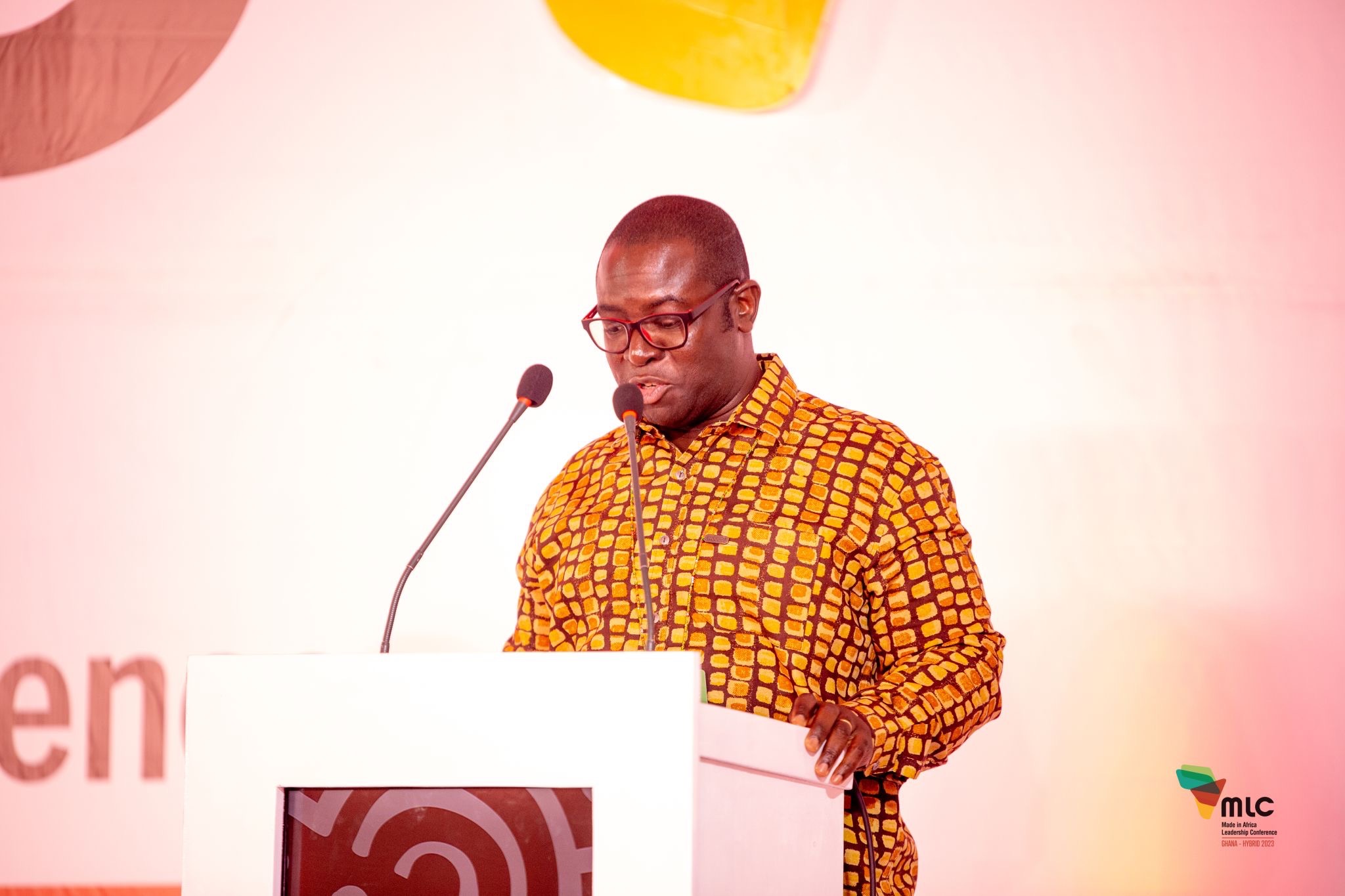
Sans Leadership–So Much to Lose, Too Much to Lose.
The following was shared as a TED-like talk to open the Made in Africa Leadership Conference by BCA Leadership on June 14 at the Marriot Hotel, Accra, Ghana.
My uncle died. My mom’s youngest brother. He came over to Ghana from the United States, where he had lived for decades, and fell ill. He died in the very hospital I worked in at the time. In fact, he died on my ward. But I can swear it wasn’t his disease that killed him. It was leadership, or rather the lack thereof. Leadership is too important for doctors not to have it.
Some of the most important things in life are not taught in school, like leadership. When some of my friends from university got into government I did exhort them: “Nobody taught us Jack about leadership. LEARN LEADERSHIP! CONTRACT COACHES! Leadership is not just caught; it is taught.” Did they listen? Ha!
Ironically, communal, national, continental or even global leadership, is a deeply person-al thing. It takes deeply transformed leaders to deeply transform society. Authentic leadership begins with aligning what goes on in a leader’s head and heart with True North. Leadership principles or True North are no respector of persons—red or yellow, black or white.
Two days from now, we will be officially launching the 20th anniversary celebration of The HuD Group, a holistic leadership organization started by nine young Africans in Accra. From one country in West Africa, it now has presence in 24 countries, on all six continents. Out of Africa to the Rest. From a former Rwandan refugee now in executive leadership in Uganda to a former child soldier in Sierra Leone now a high-ranking bank official in his homeland, to a Chinese-Canadian who we trained via Skype when she was an international medical student in Australia, a lot of transformation and impact has been achieved but in Ghana in particular I feel much of our gains have been eroded by not giving adequate attention to political leadership.
So today is the first of two important occasions this week where I will be drumming home this point with all my heart, liver, spleen and intestines: “Leadership is too important to leave it to politicians alone.” AND with 90% of African businesses being SMEs, creating 60-80% of our jobs and accounting for 40% of our GDP, what we do here at MLC this week for African leaders and African leadership is wildly important.
When two 14-year old stowaways from Guinea, Yaguine and Foday, froze to death in the landing gear of an Airbus 330 from Conakry to Brussels, they had on them a hand-written letter labelled: IN CASE WE DIE… to the Messrs. members and officials of Europe.
They said, among other things, “We have the honor and pleasure and great confidence in you to write this letter … we appeal to your solidarity and kindness for help in Africa. …we, African children and youth, ask you to create a great, efficient organization for Africa to allow us to progress. …we want to study and we ask you to help us in Africa to study to be like you.”
You should find and read the whole letter here—it will thaw and tear your heart. And that was 24 years ago. Has anything changed?
It’s time for Leadership Made in Africa that makes Africa work for Africans. BEFORE WE DIE. Yes we can, partnering and collaborating to reimagine and reform the Africa that we want! Twende! Let’s go! Let’s do this!

Introducing PELÉ (Perbi Executive Leadership Education).
Imagine a flourishing global ecosystem of authentic leaders characterized by healthy growth, holistic success and lasting significance. That’s the big dream and eternal hope fuelling our daily tasks at the Executive Education firm that bears my name, YAW PERBI. A couple of years ago, after eight years as President & CEO of a Canadian non-profit in the international education space and having garnered several years of executive leadership experience in the Ghanaian military and medical fraternity, global media, the United Nations in Cote d’Ivoire etc. I decided it was time to serve all of that to leaders of leaders: the C-suite. So I came out of sabbatical and stepped down as President of ISMCanada to do this.
Since according to my mentor of a quarter of a century, John C. Maxwell, by whom I’m officially a certified coach, speaker and trainer, that “one is too small a number to achieve greatness,” I have been steadily growing a global team of competent, caring, confident and character-based co-leaders on/from every continent in the world beyond myself to make our faith, sight. That journey has culminated in the birth of PELÉ.
A Play on Words
In keeping our focus on growing and coaching executive leadership to succeed, ever broadening the authentic relationships and resources we bring to bear on our task, we decided to move away from YAW PERBI specifically and to build Perbi Executive Leadership Education, PELÉ for short. PELÉ is not exactly just a happy coincidence, for as a once-upon-a-time football fanatic and soccer player for my elementary school, I recently engaged in my fair share of arguments about who the greatest soccer player of all time is between the shouts in favour of Lionel Messi after lifting the Qatar World Cup trophy on December 18, 2022 and the incessant calls to hallow the legendary Edson Arantes do Nascimento, better known by his nickname Pelé, who died eleven days later on December 29. As a double childhood hero—both of my dad and myself—I had been pondering a way to honour a Black man who gave everyone so much delight and so many people of his skin hue so much pride.
As I’ve stated before, “I am eager to particularly provide C-level executives of African descent with the paradigms, processes and tools necessary to maximize their potential, to be world class, take the world stage and make their dent in the universe.”
A Word In Play
Then came April 2023 when the Pelé Foundation and Sportv launched the “Pelé in the dictionary” campaign to pay tribute and recognise his legacy in other fields beyond sport. Of course his name has long been a synonymous with success and excellence, both of which are values of our Executive Education company, but now the great Brazilian forward and only human to have lifted three World Cup trophies officially had his name in the Portuguese dictionary. The adjective “Pelé” has been added to the Portuguese edition of the Michaelis dictionary to describe “someone out of the ordinary.”
Pelé, the nickname of the late football legend, has officially become tantamount to “extraordinary, exceptional, incomparable, unique.” Pelé is an adjective for something or someone that is out of the ordinary, one who by virtue of their quality, value or superiority cannot be equalled to anything or anyone, just like Pelé. For example, he is the Pelé of basketball, she is the Pelé of paediatrics.
What’s in a Name?
According to Emily Olson of NPR, “It was in the small, impoverished town of Bauru where he first got his nickname playing in youth leagues.” Apparently, even Pelé himself wasn’t sure where it came from, he wrote in a 2006 piece for The Guardian, but it may have been a play on Bilé, the nickname of a goalkeeper for the team Pelé’s father played on. “I can remember the name really bugged me at first. I was really proud that I was named after Thomas Edison and wanted to be called Edson,” he said. “I thought Pelé sounded horrible. It was a rubbish name. Edson sounded so much more serious and important.”
PELÉ by YAW PERBI is an Executive Education firm that offers authentic and customized relationships and resources to C-Level executives to grow personally, succeed professionally and become significant societally. To this end, the company provides Pelé services in leadership development, management training, executive coaching and publishing. Our Pelé coaching, authoring, speaking, and training are centred on LIFE—Leadership, Integrity, Family, Entrepreneurship.
Conclusion
We are PELÉ–extraordinary, exceptional, incomparable, unique–but more importantly, we form PELÉs, who are authentic, out of the ordinary executive leaders in every sector of life and all society’s centres of influence. As a forward-looking, authentic leader, if you want to dextrously dribble through LIFE and exceptionally hit goals like the legendary Pelé, you know where to look for the kind of coaching and training it will take: Perbi Executive Leadership Education (PELÉ). Like begets like.

